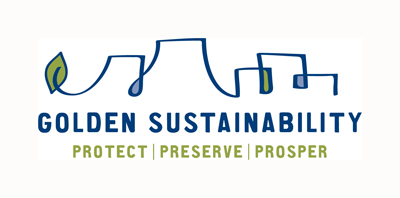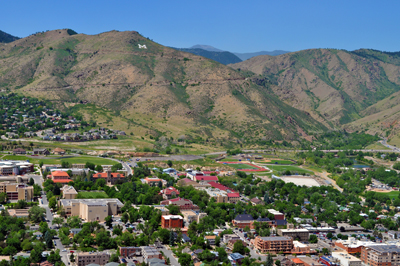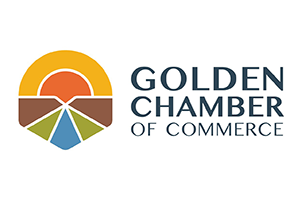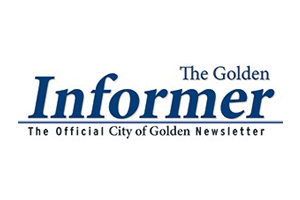Welcome! We’re helping to Sustain Golden’s future. Thank you for joining us.

Golden City Council and the Golden community made sustainability its top priority starting in 2007. As part of that endeavor, citizens were asked to engage in a broader community-wide effort to establish and implement sustainability goals through several Community Working Groups. The community working groups began meeting to study each of the goal areas in March 2007 and, in July 2007, made recommendations for consideration by City Council. A final evaluation report was produced by Natural Capitalism Solutions, an independent outside third party.
On Aug. 23, 2007, Golden City Council formally adopted the working groups’ revised sustainability goals with Resolution No. 1793 ![]() and later updated in 2019 through Resolution No. 2656. The Community Sustainability Advisory Board was created in 2008 by Ordinance 1789
and later updated in 2019 through Resolution No. 2656. The Community Sustainability Advisory Board was created in 2008 by Ordinance 1789 ![]() and is assisted by the City’s sustainability manager.
and is assisted by the City’s sustainability manager.
In 2019-2020, more than 80 residents, businesses owners, civic leaders and interested citizens helped the city to prioritize upcoming sustainability projects. Their thoughtful conversations were captured over 25 meetings and through surveys on the Guiding Golden website to produce the Citizen Task Force Recommendations Final Report. The Community Sustainability Advisory Board will use these recommendations as a supplement to the 2020 Sustainability Strategic Plan.
FAQ’s
Thank you for your comments and feedback on our goals. The Community Sustainability Advisory Board and City Council have reviewed all survey responses, email comments and suggestions. Please see the FAQ section below for answers to the thoughtful questions presented throughout the process. Stay tuned to this page for more FAQ’s and answers as we continue to receive feedback.
How can citizens track progress against goals easily (e.g. through a website) and get info on programs and what they can do? CSAB is working to create “sustainability dashboards” that will be posted to the City website. With the dashboards, citizens will be able to track progress on the goals. The Sustainability Department also posts frequent updates on the City Website and social media channels. Visit the Outreach and Education page for a list of ways you can connect with Golden Sustainability. Also, sign up for the Sustainability Email List to receive email updates on ways to share ideas, participate in projects, and contribute your knowledge to Golden’s Sustainability Initiative.
Are the goals intended for City of Golden facilities, or do they extend to the community as a whole? The goals also apply to City facilities and in some instances, have higher targets to achieve than the community goals. In the past, City Council adopted the LEED standard for new city buildings and the Community Sustainability Advisory Board recommended that the City demonstrate its commitment to the goals through transparency in adhering to the goals.
Is transitioning from natural gas for heating the most efficient thing to do with current technologies? The basic concept of transitioning away from natural gas is that solar power is renewable and conversion from natural gas appliances to electric appliances can help us achieve our 100% renewable energy goals and avoid the greenhouse gas emissions from natural gas.
How do you plan to reach out to other industries, Coors, and resources at NREL? The City communicates often with our neighbors and often has joint projects through a Memorandum of Understanding (MOU) with NREL, the Department of Energy, and the Colorado School of Mines. NREL offers technical assistance grants and MillerCoors participates in community sustainability projects each year. As an aside, the majority of MillerCoors’ buildings (except for only the North Office building) is outside the city limits and is not subject to the City’s sustainability goals.
Will building codes be improved to create better-insulated houses? Since 2007, the City has periodically updated the zoning and building codes each year to include best practices in sustainability and energy efficiency. The City adopts new versions of the International Building Codes every three years, as they are published by the International Code Council. Insulation and energy efficiency have increased significantly in these codes over the past ten years. New construction is highly efficient because of this, and the real challenge is improving existing, older houses in Golden.
What about adding more Super Charging EV stations? The City partners with other entities to bring Level 3 (480volt) charging stations to Golden, but currently the estimated $40,000 price tag and monthly energy costs are fairly steep, even with current grants. Like the affordable Level 2 chargers, which are more common, the superchargers will come down in price over time and we will continue to look for the best locations and optimal pricing for installation.
Are these goals for the City, residents, or both? These are goals for the entire Golden community; residents, businesses, and the City organization.
Will the energy cost of renewables be affordable to residents? At the utility scale within the past year, the market has already seen some favorability of renewables over traditional coal power. At home, the current return on investment or payoff period for solar is about 7 years. Prices for owning solar systems have come down 60% in the past ten years and is affordable even without any rebates or incentives.
In terms of space and resources, how will this be accomplished and is it feasible? A diversified approach will be necessary to achieve the energy goals. Our community’s utility, Xcel Energy, will need greater commitment to supply renewable electricity.
Get Involved
 Passionate about sustainability? Sign up for our mailing list, to receive email updates on ways to share ideas, participate in projects, and contribute your knowledge to Golden’s Sustainability Initiative.
Passionate about sustainability? Sign up for our mailing list, to receive email updates on ways to share ideas, participate in projects, and contribute your knowledge to Golden’s Sustainability Initiative.
Colorado Sustainability Legislative Bills
2021
HB21-1052 – Define Hydroelectricity as Renewable Energy – Became law
HB21-1076 – Carpooling Service Internet Application Register CDOT – Became law
HB21-1141 – Electric Vehicle License Plate – Passed
HB21-1162 – Management of Plastic Products – Passed
HB21-1180 – Measures to Increase Biomass Utilization – Passed
HB21-1189 – Regulate Air Toxics – Passed
HB21-1199 – Consumer Digital Repair Bill of Rights – Lost
HB21-1205 – Electric Vehicle Road Usage Equalization Fee – Lost
HB21-1269 – Public Utilities Commission Study of Community Choice Energy – Passed
HB21-1286 – Energy Performance for Buildings – Passed
SB21-072 – PUC Modernize Electric Transmission Infrastructure – Passed
SB21-161 – Voluntary Reduce GHG for Natural Gas Utilities – Lost
SB21-180 – Recycling and Composting Enterprise Grant Program – Under Consideration
SB21-200 – Reduce Greenhouse Gases Increase Environmental Justice – Lost
2019
HB19-1159 – Concerning Modifications to the Income Tax Credits for Innovative Motor Vehicles – Passed
HB19-1003 – Expanding the Size and Allowable Locations of Community Solar Gardens – Passed
HB19-1037 – Colorado Energy Impact Assistance Act – Lost
HB19-1050 – Encourage Use Of Xeriscape In Common Areas – Passed into Law
HB19-1143 – Distribute Plastic Straws Only Upon Request – Lost
HB19-1165 – On-site Wind Turbine Manufacturing Property Tax Exemption – Lost
HB 19-1198 – Strengthening the EV infrastructure grants program administered by the Colorado Energy Office – Passed
HB19-1260 – Requiring local governments to adopt up-to-date versions of the International Energy Conservation Code – Passed
HB19-1231 – New Appliance Energy And Water Efficiency Standards – Passed
HB19-1261 – Big Climate Bill, sets state emissions reduction targets reductions – Passed
HB19-1272 – Enabling public housing authorities to participate in the state commercial PACE program – Passed
HB19-1314 – Setting up programs to assist in the transition of coal-impacted communities – Passed
SB19-034 – Local Government Recycling Standards For Food Containers – Lost
SB19-053 – California Motor Vehicle Emission Standards – Lost
SB 19-077 – Utility Financing of EV Charging Infrastructure – Passed
SB19-096 – Collect Long-term Climate Change Data – Passed
SB19-192 – Front Range Waste Diversion Enterprise Grant Program – Passed
SB19-243 – Prohibit Food Establishments’ Use Of Polystyrene – Lost
SB19-198 – Continued Management Of Waste Tires – Passed
SB19-181 – Protect Public Welfare Oil And Gas Operations -Passed
SB19-236 – Sunset Public Utilities Commission – Passed
2018
HB18-1054 – Affordable Housing Plastic Shopping Bag Tax – Lost
HB18-1069 – Reclaimed Water Use for Toilet Flushing – Passed
SB18-003 – Colorado Energy Office – Passed
SB18-045 – Repeal Architectural Paint Stewardship Act – Lost
SB18-047 – Repeal Tax Credits Innovative Vehicles – Lost
SB18-064 – Require 100% Renewable Energy by 2035 – Lost
SJM18-002 – Eliminate Energy Subsidies – Lost
Sustainability Strategic Plan
 In Golden, as across the U.S. and other nations, we are faced with impacts as a result of population growth, resource consumption, and energy needs. Golden is also affected by regional impacts such as the economy, the structuring of local tax revenues, and competing needs for resources by adjacent communities.
In Golden, as across the U.S. and other nations, we are faced with impacts as a result of population growth, resource consumption, and energy needs. Golden is also affected by regional impacts such as the economy, the structuring of local tax revenues, and competing needs for resources by adjacent communities.
Balancing these factors, the Community Sustainability Advisory Board has adopted the definition of sustainability as “living or acting in a manner that balances improving our quality of life, a healthy vibrant community, and mindful stewardship of the natural resources and environment while protecting the ability of future generations to do the same.” With this in mind, the Board recognizes that sustainability efforts are not an end goal, but endeavors to continually strive toward improvement.
In late 2010, the Community Sustainability Advisory Board prioritized a list of sustainability policies and projects that the Board will work toward. This list is updated every 5 years and you may read the current 2020 Sustainability Strategic Plan ![]() or previous, 2015 Sustainability Strategic Plan
or previous, 2015 Sustainability Strategic Plan ![]() and learn more about Golden’s plans for a greener future.
and learn more about Golden’s plans for a greener future.
Additional Resources
The Greenhouse Gas Emissions Inventory & Sustainable Energy Benchmarking and Actions Plan ![]() is a CU-Denver Report that measures the greenhouse gas (GHG) emissions for the City’s baseline year, 2007, and provides recommendations on reducing GHG and meeting the City’s sustainability goals. The Report was made possible through a Colorado Municipal League grant in partnership with Walmart.
is a CU-Denver Report that measures the greenhouse gas (GHG) emissions for the City’s baseline year, 2007, and provides recommendations on reducing GHG and meeting the City’s sustainability goals. The Report was made possible through a Colorado Municipal League grant in partnership with Walmart.












